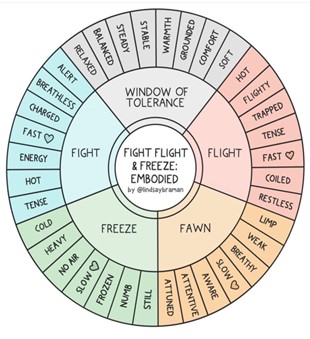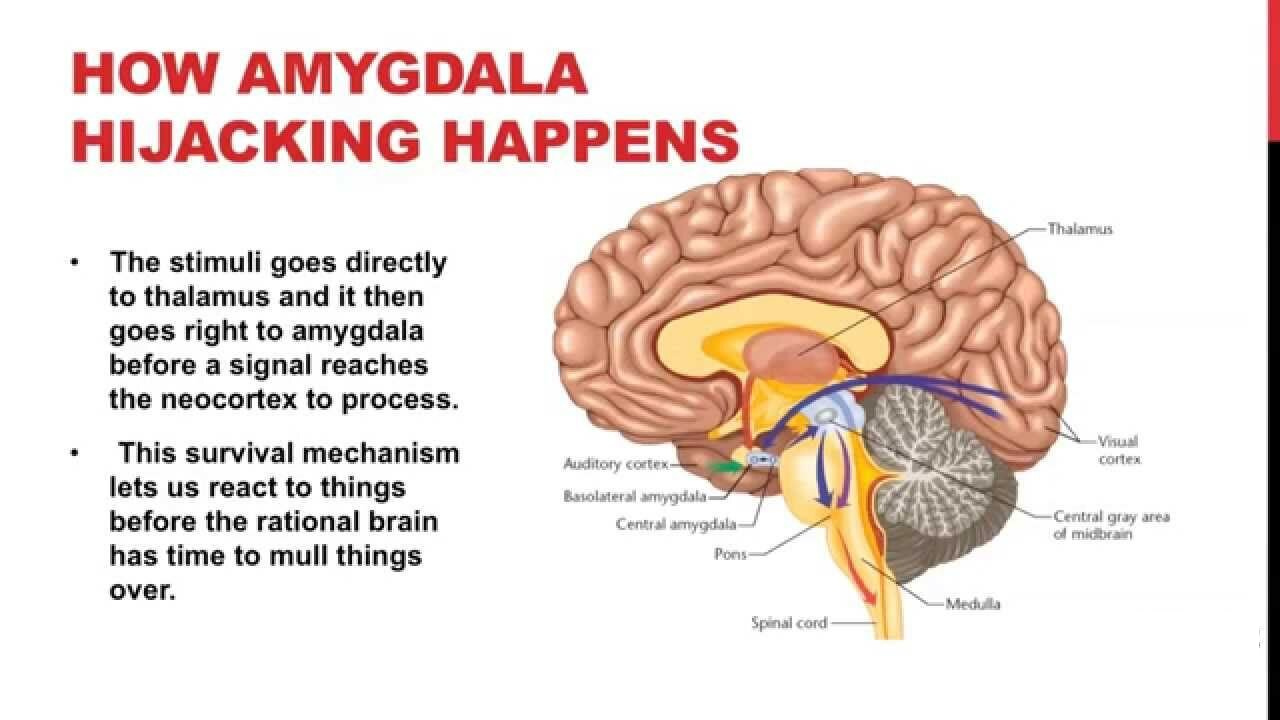By Temima Rothmel, MSW, LCSW – JFCS Staff Therapist
Trauma is defined as a deeply disturbing and distressing experience. All of us have most likely experienced some form of trauma in our lifetime whether directly or vicariously. When a traumatic event occurs, our brains react differently. There is no time to think or process the input. We just react. Our brain and body choose the best course of action that will keep us safe. The different reactions to trauma are categorized as “The Four F’s.” They are fight, flight, freeze, and fawn (see graph).
experience. All of us have most likely experienced some form of trauma in our lifetime whether directly or vicariously. When a traumatic event occurs, our brains react differently. There is no time to think or process the input. We just react. Our brain and body choose the best course of action that will keep us safe. The different reactions to trauma are categorized as “The Four F’s.” They are fight, flight, freeze, and fawn (see graph).
Some of the reactions are self-explanatory. Think of it this way: you see a bear. You do not have time to process, “Hmm, what is the best way to survive meeting this bear?” Your body and brain make a snap decision for you: are you going to fight this bear, run from this bear, play dead, or tell the bear how pretty and strong it is?
 When we are faced with a trauma, our frontal lobe, which is where we engage in executive functioning or rational thinking, is not involved. The part of our brain making these decisions is our amygdala, our emotion center. Our amygdala essentially hijacks our brain to keep us alive and as safe as possible. Depending on the severity, nature, and frequency of the traumatic event(s), there can be a lasting impact on our body and mind. Symptoms of trauma can include flashbacks, nightmares, increased anxiety, confusion, dissociation, panic attacks, sleep disturbances, guilt, unhealthy boundaries, and body pains to name a few.
When we are faced with a trauma, our frontal lobe, which is where we engage in executive functioning or rational thinking, is not involved. The part of our brain making these decisions is our amygdala, our emotion center. Our amygdala essentially hijacks our brain to keep us alive and as safe as possible. Depending on the severity, nature, and frequency of the traumatic event(s), there can be a lasting impact on our body and mind. Symptoms of trauma can include flashbacks, nightmares, increased anxiety, confusion, dissociation, panic attacks, sleep disturbances, guilt, unhealthy boundaries, and body pains to name a few.
Through therapy, we can recover from traumatic experiences. By learning adaptive coping skills to manage symptoms of trauma and processing traumatic events by integrating them through our frontal lobe, healing can begin. Various techniques and skills can be learned and implemented to work through what we have been through and reduce the impact trauma has on our lives.
We need to be gentle not only with ourselves, but also with others in our life. Instead of asking, “What is wrong with you?” we can begin by asking, “What happened to you?” We all have our stories. If you are experiencing any impact from trauma, please reach out. Here at JFCS we can help. To get started, please call us at (856) 424-1333 or email counselingintake@jfedsnj.org.
 Temima Rothmel has more than eleven years of experience as an outpatient therapist. While completing her graduate studies, she received certification in violence against women and children, with a focus on working with survivors of trauma. She utilizes several techniques to help clients grow, and is trained in cognitive behavioral therapy, mindfulness, motivational interviewing, and sand play therapy. To read Temima’s full bio, click HERE.
Temima Rothmel has more than eleven years of experience as an outpatient therapist. While completing her graduate studies, she received certification in violence against women and children, with a focus on working with survivors of trauma. She utilizes several techniques to help clients grow, and is trained in cognitive behavioral therapy, mindfulness, motivational interviewing, and sand play therapy. To read Temima’s full bio, click HERE.

